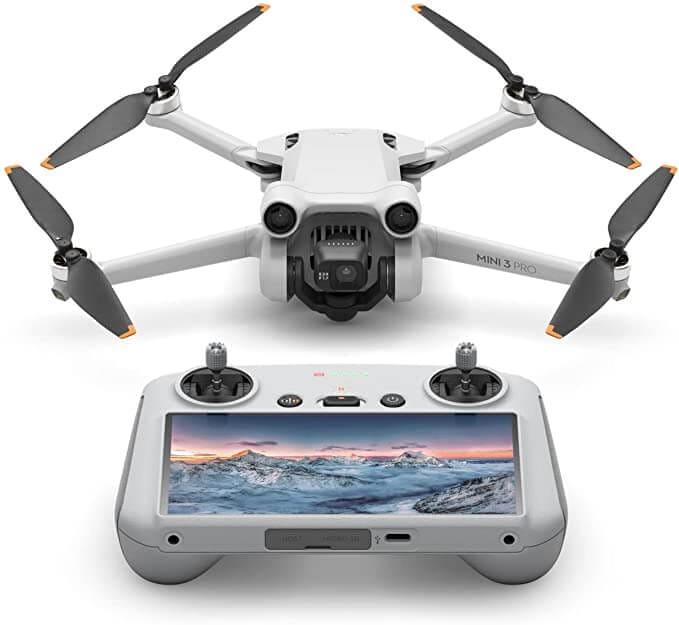Whilst you can't physically get more time available than 24 hours a day, you can…
Part of our future relies on us being able to continue to think freely as humans in a world where technology may see us have to try harder to avoid being a robot.
‘How to avoid being a robot’ was hardly a title I’d have thought I’d ever write when I was younger, but here we are in 2022, and with each passing year the reality of this once absurd idea isn’t really that absurd anymore, and who knows, in 10 years time or less, we may be seeing countless technology detox rehab clinics around the world, likely technology-fueled ‘rest tanks or nap sleeping pods‘ that help us get away from it all for a moment to recharge our batteries with a meditative VR vista – an irony in how we even then rely on technology to help us calm and ‘get away’ from the burnout of other aspects of technology.
As I sat down to pen this article I did my due diligence research, geared up my creative mind, and matched the two, finding that this concept of being a robot actually isn’t that far from our real life today, in fact, we already show elements of it.
I found there were three main areas that are pushing us into more robotic-like thinking and which could stifle our very human trait of creative, lateral thinking. So here they are:
How To Avoid Being A Robot #1: Avoid Working Like A Robot
No you don’t need to work 16-plus hour days and think that will help you be more effective or productive. We are not built like computers. Our inner battery needs more than an hour to keep going for a day again. We can’t just keep going, and despite the improvements technology has helped bring to our personal health it doesn’t mean we try to go through our days without rest. The simple fact is that we humans are healthier when we rest.
Want to know how to survive in the ocean if you fell out of a boat? Or how to survive being sucked into quicksand?
Well, a key survival skill is in resting when you can. Use up all of your energy in panic and you simply will quicken your demise. Learn to slow down and take a rest once in a while. Your human body and mind will thank you for it.
Thankfully some already are. There’s no surprise that more and more people have sought out ways to humanise their life through methods like meditation these days, as we can feel our work days already comprise of lots of repetitive, robotic tasks.
Spending so much time answering automated ‘urgent’ emails, having less and less communication with humans on fresh lateral thinking tasks (and instead on systematic targets and data analytics), working in cubicles, or flowing through social media like drones with phones, all take away part of our humanity.
Therefore, it’s really important to try and get part of that back whenever we can. This shouldn’t just be with finding ways to enjoy our downtime away from screens, but also should be in finding better ways to work so we aren’t so plugged in all the time.
It’s about being productive ‘enough’ in what we need to do, and not just being busy because technology makes it easier for us to be so. It’s giving attention to our human brain, not roboticising it all the time.
Get Less Done is a useful site giving tips on how to live a more productive life without so many bells and whistles, and by finding more time and energy by approaching life in a lighter way.
How To Avoid Being A Robot #2: Avoid Thinking Over-Logically Like A Robot
Does it really matter whether things have a space or hyphen or not? We get it, maybe you are a coder and have no say in the matter, but this very particular form of preciseness in language building cuts out our ability to communicate freely when speaking to actual humans.
Technology has led to a whole cyber-security genre where we now worry about having identities potentially stolen, and to counteract this we instead now have tech telling us whether we are approved for credit or not. If ‘the computer says no’ then good luck finding a human who will trust you over what their (often incorrect) file says about you.
Then you’ve got the whole situation in tracked data. Click on a ‘like’ and that’s information on you that finds its way into advertiser’s hands. Your potential boss may also judge you based on a 10-year-old photo rather than what you’ve done since. The pattern that emerges is one of control, and that control isn’t in your hands.
So, if you want to avoid being a robot we have to truly consider whether we should be so readily judged by them and that means deciding whether we should be so reliant on them.
Selfie-drones may seem like a creative fun idea because of the novelty and relative newness of it all, and drones are pretty cool and potentially useful technology (as technology also solves so many problems too), but it can also underline how much we now rely on technology to make us feel good about ourselves as humans.


It’s not to say we should live like hermits and avoid technology, not at all, but the challenge for us humans is to remain human, to think freely outside the confines of control, and to be aware of how technology can easily be programmed to give us dopamine hits (which essentially controls our reactions).
If we essentially allow ourselves to think in such robotic ways then we only have ourselves to blame. It’s up to us to remain human.
How To Avoid Being A Robot #3: Avoid Having Your Job Being Replaced By A Robot
This final area is a tricky one. With more and more jobs becoming digitalised and with a growing number of younger workers essentially born addicted to technology, then it may be hard to see the potential pitfalls ahead of us in how we slowly lose our ability to think laterally.
If we get to a point where we essentially expect computers to fix problems for us, then we are nothing more than glorified assistants to robots, working on maintaining and cleaning them up. Already we see tons of jobs involved in coding or data inputting.
The more people fall into these jobs the more the lateral and creative parts of their brain become dormant. It’s the equivalent of your phone battery going in the middle of nowhere and not having a clue how to solve the problem and survive. It’s also why it’s hugely important for us not to lose that survivalistic nature within us.
If we are presented with a new situation we should be able to adapt and find a way to navigate it without relying on techology to provide the answer. If you want to avoid being a robot then try a day or a week without looking at Google for a quick answer and you’ll see the lateral part of your brain begin to glow again. Thankfully, our brain is a muscle that just needs a little exercise to wake-up.
If computers are to be programmed to perform systematic tasks that essentially replace many linear parts of our brain, then it’s even more important to be able to think laterally (to be able to adapt and create), as we simply won’t be able to compete in areas of linear thinking.
Think of it this way. What is 3452×746? Even a maths whizz would take longer to ‘compute’ the answer to this than a programmed computer. A computer can calculate and follow methods far quicker than we can, and so there comes a point in the future where we stop trying to compete with it and realise that it’s more efficient (and possibly affordable at the time) for us to rely on computers for many repetitive tasks and logic-based roles around society.
It might not seem like many of our jobs have been completely replaced by computers yet, but it won’t be long until many become redundant (see what jobs may be replaced by robots by 2030). Instead of train drivers going on strike because they aren’t getting a rise to match inflation they may simply be replaced by technology and driverless trains that can do the job 24/7. This is already happening in some places, and so it leads towards a huge shift and need in people developing skills that aren’t replaceable by technology.
Whilst it’s pretty obvious that new jobs will emerge as part of the ‘technology takeover’, such as data scientists, it’s really important that the human touch is something we don’t also replace (although we already see companion robots aiding elderly patients in Japan). We need to ensure there are still plenty of jobs for us humans to be able to do that challenge us to problem-solve and think laterally (see human-centred jobs that may exist in 2030).
We certainly don’t want to hit a point in the future where we just become glorified assistant jobs to robots for everything, where we barely know how to think, or we only live to serve robots. Will we be giving robots therapy one day?! Let’s hope not. Things really will be backwards if we get to that point.
In history, humans have made a lot of mistakes, but we also have a wonderful ability to solve problems and learn from them, and so our ability to think laterally and adapt to changing times will only become more important in the future.









